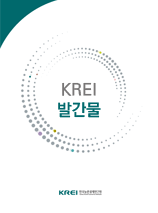- Ten Years of Korea-U.S. FTA: focusing on agri-food trade
-
-
10 years have passed since the Korea-U.S. FTA came into force on March 15, 2012. Tariffs on 97.9% of agricultural products have since been abolished.
• Seoul and Washington had eight negotiations with two additional rounds of talks before the treaty finally went into effect in March 2012. Through their talks, the two sides agreed to open 97.9% of agricultural items (based on the Harmonized System).
The bilateral trade volume in agricultural products has increased since the effectuation of the Korea-U.S. FTA. Korea’s trade deficit has widened during the period, while FTA application for goods exported to the U.S. has been relatively low.
• The agricultural and livestock products imported from America reached $10.32 billion in the 10th year (2021) of the treaty, up 73.8% from the average before the treaty went into effect. The average import volume between the 6th and 10th year of the treaty amounted to $9.07 billion, up 52.7% before the enforcement.
• Korea’s agricultural and livestock exports to the U.S. posted $1.26 billion, 214% up from the average before the treaty. The average export between the 6th and 10th year reached $980 million, up 43.6% during the same period.
• Korea’s trade deficit rose to $809 million in the 6th-10th year, up 46.1% from the average before the treaty.
• The average import unit prices for American beef, pork, grape, and kidney beans in the 6th-10th year were up from the figures before the treaty. However, the imported volumes and their shares to the total expanded during the same period.
• The fill rates of U.S. items subject to tariff rate quotas (TRQs) were around 50% due to changes in import sources and decreased demand for American products. ASG measures were triggered for five items.
• FTA application for items imported from the U.S. amounted to 71.6% on average in the 10th year of the treaty. However, the application for items exported to the U.S. slightly rose from 42.9% in 2012 to 49.5% in 2021, with the livestock category at 70.7%, the highest of all.
The Korean government has signed free trade agreements with various nations. While doing so, it should also pursue self-sufficiency by expanding the domestic output of high-quality agricultural and livestock products. At the same time, it must focus on education to increase FTA application to Korean products exported to America.
• Korea should use digitalized, smart farming to expand high-quality product output. The government has to educate stakeholders to raise FTA applications for Korean agricultural and livestock products exported to the U.S. -
목차
-
1. Introduction
2. Enforcement of the Korea-U.S. FTA and changes in agri-food trade
3. Changes in trades of major products
4. Summary and key findings
요약문
10 years have passed since the Korea-U.S. FTA came into force on March 15, 2012. Tariffs on 97.9% of agricultural products have since been abolished.
• Seoul and Washington had eight negotiations with two additional rounds of talks before the treaty finally went into effect in March 2012. Through their talks, the two sides agreed to open 97.9% of agricultural items (based on the Harmonized System).
The bilateral trade volume in agricultural products has increased since the effectuation of the Korea-U.S. FTA. Korea’s trade deficit has widened during the period, while FTA application for goods exported to the U.S. has been relatively low.
• The agricultural and livestock products imported from America reached $10.32 billion in the 10th year (2021) of the treaty, up 73.8% from the average before the treaty went into effect. The average import volume between the 6th and 10th year of the treaty amounted to $9.07 billion, up 52.7% before the enforcement.
• Korea’s agricultural and livestock exports to the U.S. posted $1.26 billion, 214% up from the average before the treaty. The average export between the 6th and 10th year reached $980 million, up 43.6% during the same period.
• Korea’s trade deficit rose to $809 million in the 6th-10th year, up 46.1% from the average before the treaty.
• The average import unit prices for American beef, pork, grape, and kidney beans in the 6th-10th year were up from the figures before the treaty. However, the imported volumes and their shares to the total expanded during the same period.
• The fill rates of U.S. items subject to tariff rate quotas (TRQs) were around 50% due to changes in import sources and decreased demand for American products. ASG measures were triggered for five items.
• FTA application for items imported from the U.S. amounted to 71.6% on average in the 10th year of the treaty. However, the application for items exported to the U.S. slightly rose from 42.9% in 2012 to 49.5% in 2021, with the livestock category at 70.7%, the highest of all.
The Korean government has signed free trade agreements with various nations. While doing so, it should also pursue self-sufficiency by expanding the domestic output of high-quality agricultural and livestock products. At the same time, it must focus on education to increase FTA application to Korean products exported to America.
• Korea should use digitalized, smart farming to expand high-quality product output. The government has to educate stakeholders to raise FTA applications for Korean agricultural and livestock products exported to the U.S.저자정보
저자에게 문의
구매안내
KREI의 출판물은 판매 대행사 (정부간행물판매센터)와 아래 서점에서 구입 하실 수 있습니다.
판매대행사
- (주)정부간행물판매센터http://www.gpcbooks.co.kr사이트 바로가기
- 서울특별시 중구태평로 1가 25번지
- TEL 02) 394-0337, 734-6818
- FAX 02) 394-0339
판매서점
판매서점 교보문고 http://www.kyobobook.co.kr/ 영풍문고 http://www.ypbooks.co.kr/ 알라딘 http://www.aladin.co.kr/ 활용도 정보
활용도 정보 상세정보 조회 좋아요 다운로드 스크랩 SNS공유 3102 0 16 0 0 -
- Suggestions to Promote the Hometown Love Donation System
- Gouk, Seungyong
- 2022.11.25
- KREI 이슈리포트
-
- Impacts of Ukraine-Russia Conflict on Global Grain Prices
- Kim, Jongjin
- 2022.03.31
- KREI 이슈리포트
-
- The Impacts of the COVID-19 on the Korean Agricultural Market
- Seo, Hong-Seok
- 2020.06.05
- KREI 이슈리포트
-
- 10 Agricultural Policy Issues of Korea in 2019
- Jeong, Minkook
- 2019.01.29
- KREI 이슈리포트
-
- State of Korean and Overseas Markets for Environment-Friendly Agricultural Products and Challenges 2018
- Jeong, Hakkyun; Sung, Jaehoon; Lee, Hyeonjeong
- 2018.09.12
- KREI 이슈리포트
-
- Measures to Establish the Water-Energy-Food Nexus for Agricultural Resource Management
- Sung, Jaehoon; Cho, Wonju; Lee, Hyeonjeong
- 2018.09.05
- KREI 이슈리포트
-
- Changes in the Trade of Agricultural and Livestock Products and Implications after Seven Years from the Enforcement of the Korea-EU FTA
- Song, Woojin; Lee, Hyunkeun; Myeong, Suhwan; Yoo, Juyoung
- 2018.06.29
- KREI 이슈리포트
-
- 10 Agricultural Policy Issues of Korea in 2018
- Kim, Byoungryul
- 2018.01.22
- KREI 이슈리포트
-
- Income Changes by Type of Farm Household and Implications
- Woo, Byungjoon
- 2017.11.30
- KREI 이슈리포트
-
- Fact-checking of Unbalanced Korea-U.S. Trade and Countermeasures in the Agricultural Sector
- Lee, Hyunkeun; Myeong, Suhwan; Lim, Chehwan; Song, Woojin
- 2017.10.17
- KREI 이슈리포트
-
- 10 Agricultural Policy Issues of Korea in 2019
- Jeong, Minkook
- 2019.01.29
- KREI 이슈리포트
-
- Income Changes by Type of Farm Household and Implications
- Woo, Byungjoon
- 2017.11.30
- KREI 이슈리포트
-
- 10 Agricultural Policy Issues of Korea in 2018
- Kim, Byoungryul
- 2018.01.22
- KREI 이슈리포트
-
- Job Creation Potential for the Youth and Challenges in the Agricultural Industry
- Ma, Sangjin
- 2017.01.01
- KREI 이슈리포트
-
- Implementation Plan and Implications of International Development Cooperation Projects for Agriculture in 2017
- Heo, Jang
- 2017.04.28
- KREI 이슈리포트
-
- 2016 Production Status and Market Prospect of Eco-Friendly Agricultural Products at Home and Abroad
- Jeong, Hakkyun; Lee, Hyejin; Kim, Changgil
- 2016.11.30
- KREI 이슈리포트
-
- The Impacts of the COVID-19 on the Korean Agricultural Market
- Seo, Hong-Seok
- 2020.06.05
- KREI 이슈리포트
-
- Global Spread of Saemaul Undong for Rural Development in Developing Countries
- Heo, Jang; Lee, Yoonjung
- 2016.11.30
- KREI 이슈리포트
-
- Goals and Strategies to Reduce Greenhouse Gas Emissions in the Agriculture Sector
- Jeong, Hakkyun; Kim, Changgil
- 2015.11.03
- KREI 이슈리포트
-
- 70 Years' Achievements and New Challenges of Korean Agriculture and Rural Communities
- Song, Miryung; Moon, Hanpil; Kim, Meebok; Seong, Jooin; Lim, Jieun
- 2015.09.15
- KREI 이슈리포트
의견남기기
-



